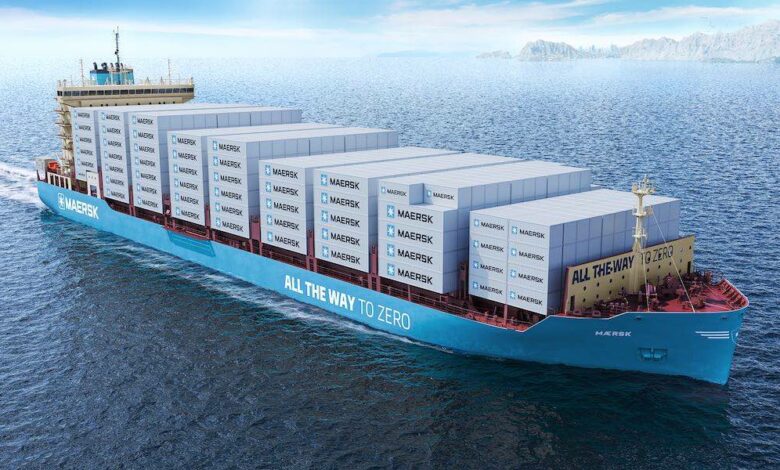
Maersk's new "Fossil Fuel Fee" proves to be more expensive for shippers compared to the surcharges
6 months ago
Maersk's new "Fossil Fuel Fee" proves to be more expensive for shippers compared to the surcharges

Maersk's new Fossil Fuel Fee (FFF), introduced in 2024, has replaced the Bunker Adjustment Factor (BAF) and Low-Sulphur Surcharge (LSS), leading to increased costs for shippers and benefiting the carrier.
Announced on May 31, 2024, and effective from July 1, 2024, the FFF has been applied to all new contracts with a validity exceeding three months. The fee is calculated based on Platts’ fuel price index for 0.5% sulphur fuel oil (VLSFO) and 0.1% sulphur fuel oil (LSMGO). For the period from May 11 to August 10, 2024, Maersk updated the FFF to an average of $586.59 per ton for VLSFO and $750.28 per ton for LSMGO, effective October 1, 2024.
Existing contracts with the previous surcharges remain valid until renewal, when they will transition to the FFF. Consequently, Maersk will continue to publish BAF and LSS rates, with the BAF and LSS for VLSFO averaging $584.27 per ton and $742.68 per ton for LSMGO from October 1, 2024.
The new FFF is approximately $2.32 higher than the combined BAF and LSS for VLSFO and $7.60 higher than the LSS for LSMGO. This discrepancy may be influenced by differing calculation periods for the FFF, BAF, and LSS tariffs. However, historical data shows that the impact of the two-week lag on fuel prices is minimal.
Some industry sources suggest that the FFF shift may be a strategic move by Maersk to offset the significant costs associated with methanol, with concerns that this adjustment could be seen as a way for the carrier to increase revenue. Maersk, however, has stated that the FFF aims to simplify fuel surcharges and provide enhanced logistical connectivity and benefits to customers.
Source: The Loadstar